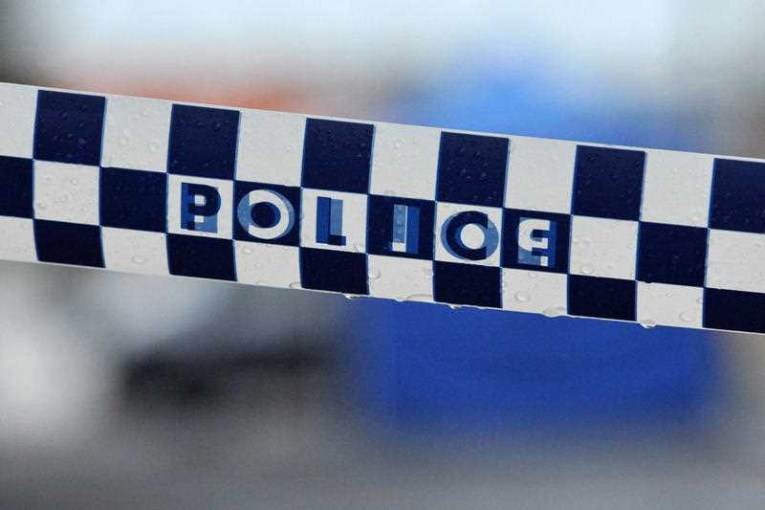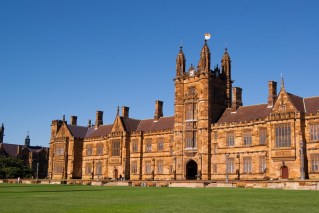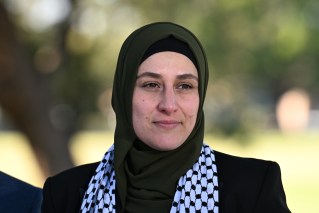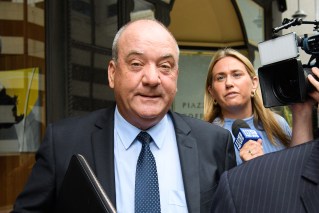Labor queries ‘broken promises’ on mRNA vaccines, including 2024 timeline

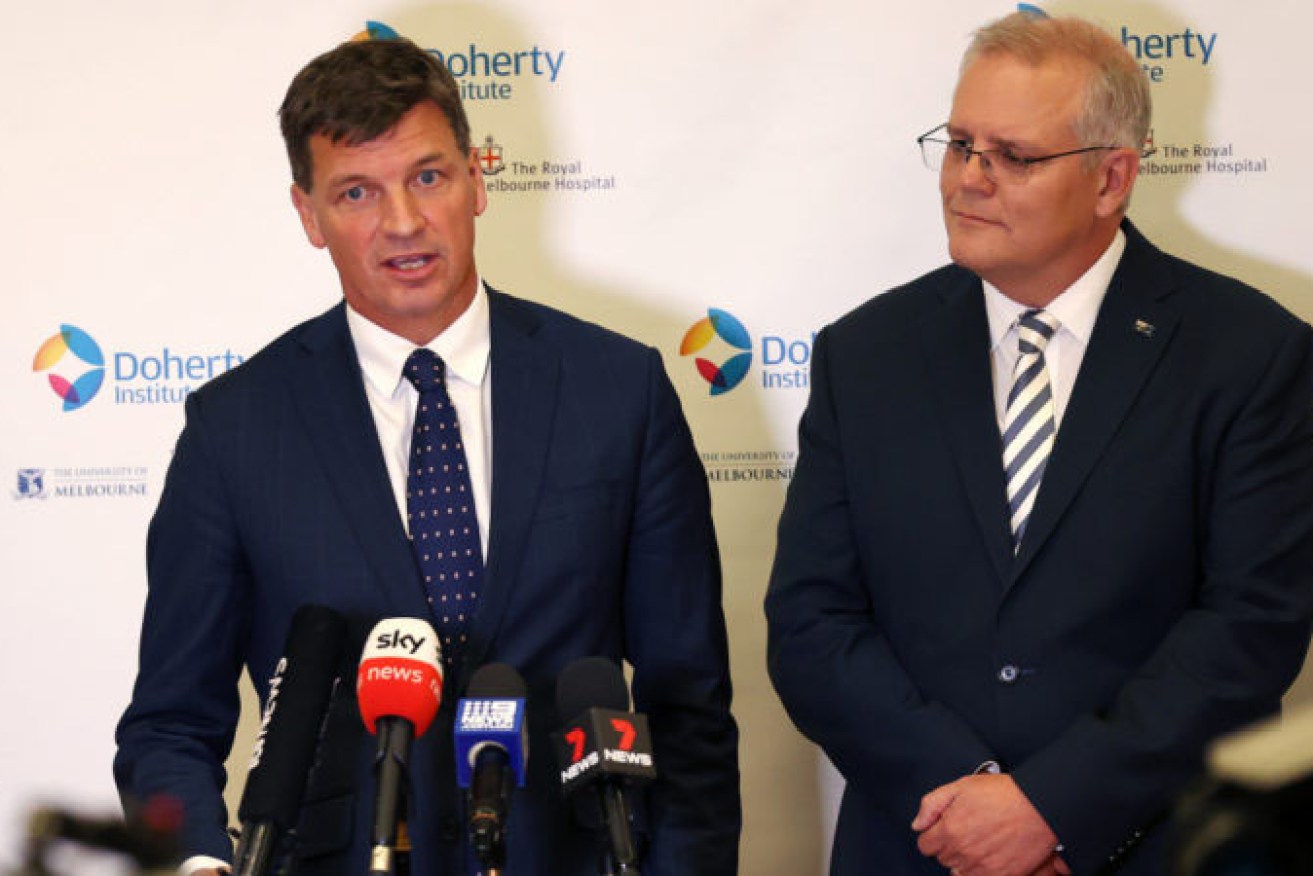
Industry Minister Angus Taylor and Prime Minister Scott Morrison announce Moderna's mRNA agreement on Tuesday. Photo: AAP
The federal government will not proceed with plans to partner local Australian companies in the production of mRNA vaccines, instead tapping American firm Moderna to ensure local access to the world-leading technology.
But while welcoming the announcement, Labor has criticised the delay in making the partnership and the 2024 completion date of a planned Melbourne factory.
The federal government previously claimed local mRNA production could be up and running by this year.
“The Morrison-Joyce government, in October 2020, told the public that nine to 12 months is when we could expect to see manufacture onshore,” shadow industry minister Ed Husic said.
“The reality is they made that commitment. They should honour it.”
Prime Minister Scott Morrison confirmed on Tuesday that Texan firm Moderna would build a vaccine factory in Melbourne, which would produce up to 100 million doses per year “in a pandemic”.
However, the Victorian government said that number was actually its “capacity to scale up” in an emergency, with standard production more like 25 million doses per year.

Moderna will make mRNA vaccines in Australia. Photo: Getty
Labor had accused the Coalition government of dragging its heels on the commitment to mRNA manufacturing made early in the pandemic.
Tuesday’s joint federal and Victorian government announcement confirmed Moderna would build manufacturing and finishing facilities, and a local research centre, creating 500 jobs.
Questions remain
Both governments hailed it as a huge step, with Australia to become the largest mRNA manufacturing centre outside Europe and the United States, and one of just a few countries in the world to have access to the cutting-edge vaccine technology.
Professor Sharon Lewin, director of the Doherty Institute, said she was “thrilled” by the Moderna announcement.
Professor Peter Doherty, after whom the Doherty Institute is named, called it “excellent news”.
But neither government, nor Moderna’s Australian representatives, were able to confirm key details such as the exact location of the facility, how much it would cost, how much money Australian taxpayers would contribute, or when construction would start.
Tweet from @GregHuntMP
Moderna’s Australian general manager Michael Azrak said location details were still “under discussion”.
Mr Morrison said financial details were “commercial in confidence” and “sensitive”, but said it would be a “very equal partnership”.
“The mRNA vaccines have proven to be, I’d argue, the biggest scientific discovery over the course of this pandemic,” the PM said at the announcement at Melbourne’s Doherty Institute.
“With Moderna, we have a partner that ensures that their IP, their knowledge, their advances and medical science can be brought here and be part of an ecosystem here that will see Australia also be a leader in this area.”
Deal delays questioned
Vaccine production is not scheduled to begin until 2024, but Mr Azrak said he hoped it may be slightly sooner.

Labor’s Mr Husic questioned the delay in the rollout. Photo: AAP
Mr Husic said the news was “good”, and welcomed local manufacture of mRNA jabs. However, he noted the timeframe was a departure from earlier federal government forecasts.
In October 2020, then-Industry Minister Karen Andrews was asked on ABC’s Insiders when she expected a local production line for Australian-made mRNA vaccines.
She said she expected it would be “about the nine-month to 12-month time frame.”
In July this year, another then-industry minister in Christian Porter said a 12 to 18-month time frame was “the most likely”, but noted an “outer time frame” of three years.
“Two years into this pandemic, we’ll get it two years later in 2024. That is what we are getting today. This needs to be put in perspective,” Mr Husic said in Sydney.
At his press conference, Mr Morrison noted the government had “spent the time to get it right”, claiming it was “not an arrangement that you just rush into”.
In response to a question on Ms Andrews’ comments, the current Industry Minister Angus Taylor noted the intricacies of the arrangement, including obtaining access to intellectual property.
“It’s important to point out that there’s been no development of a new mRNA manufacturing facility anywhere in the world since the pandemic struck. And this will be one of the first in the world,” he said.
Mr Husic said he accepted the difficulties of inking such an agreement, but accused the government of a “broken promise” on the timeline.
“What I have consistently done is remind the government of its own words, the commitments it made to the Australian public,” he said.
“I appreciate it’s difficult. I appreciate they’ve got to go through the negotiations and work through firms.
“If they had just said, ‘this is enormously difficult and our best hope is we get it done in 12 months but it might take four years’, if they had said that in October 2020, then none of the criticisms I would have made could have been made.”
Australian firms excluded

Victorian acting Premier James Merlino and Mr Morrison at the Doherty Institute. Photo: AAP
The government’s agreement with Moderna comes as Australian biotech firms were not accepted into the government’s approach to market process.
The government ran what it called a “two-pronged approach”, negotiating with existing manufacturers like Pfizer and Moderna, as well as inviting applications from newer manufacturers including Australian biotech firms.
About a dozen such firms had applied to the approach to market.
However, The New Daily understands the government has not decided to make agreements with any Australian companies for end-to-end onshore manufacturing of mRNA vaccines.
Adelaide firm BioCina, one of those that applied, told TND it was “disappointed” its application had not been successful.
However, TND also understands the federal government is looking at other opportunities – outside of end-to-end manufacturing – to support mRNA capacity and research in Australia, including providing grants through its Medical Research Future Fund and Modern Manufacturing Strategy.
Mr Husic said Labor would welcome more Australian companies getting government support to produce vaccines.
“If the government can find a way to work with those people, I think having extra ability to do mRNA manufacturing onshore would undoubtedly be a good thing,” he said.
